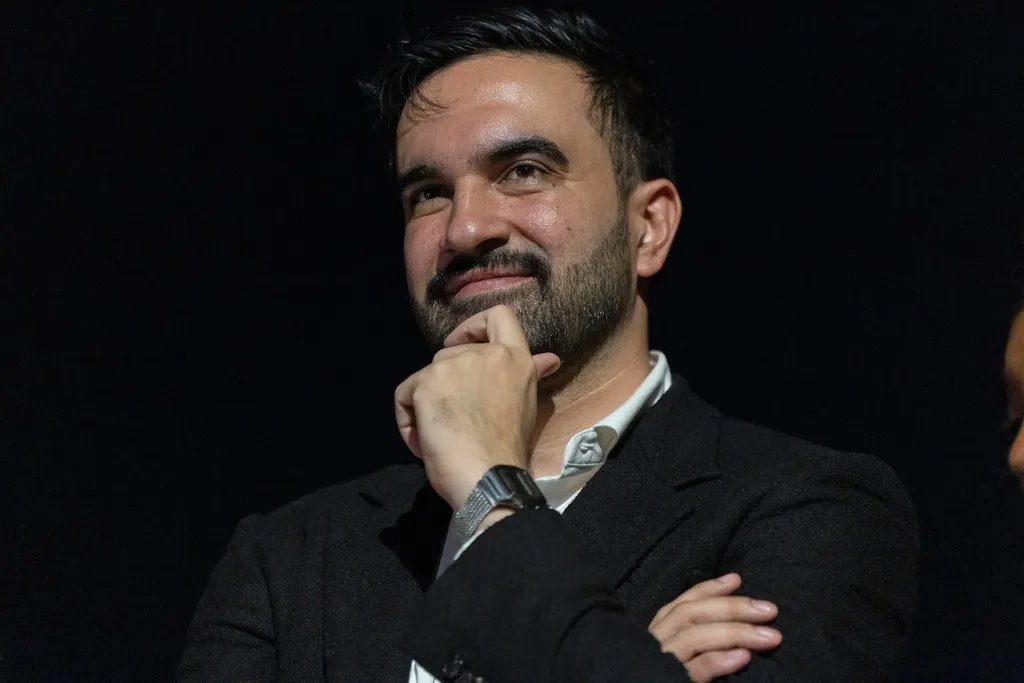New York City mayor-elect Zohran Mamdani has recently argued that the city should become a model “post-capitalist” metropolis — a city that rejects private property structures, redistributes wealth on a systemic scale, and re-engineers civic life around state-managed equity. It is classic Marxist socialism. It is a seductive idea for activists and academics. But we have seen versions of this experiment before in the Western Hemisphere.
We have seen it in Venezuela. We have seen it in Cuba. And we have seen the results: collapse, dependency, and political repression packaged in the language of “justice.” Socialism never results in more freedom or peace.
What is missed in this romanticization is the simple, unforgiving reality: when socialist systems appear to function, it is both short-lived and dependent on external subsidy. Every seemingly successful socialist experiment — from Havana to Caracas to now a Mamdani-led New York City — has depended on the resources of systems more productive than itself. When that subsidy ends, the collapse begins. No economic system is impervious to turbulence. But when it happens in a free market, capitalist economy, people retain their fundamental rights, the recovery is far quicker, and the dip is less abusive to citizens.
ALL HELL WILL BREAK LOOSE’ UNDER MAYOR MAMDANI: RANDY FINE
New York City is no exception.
Despite being the global symbol of capitalism, New York City now depends on the federal government for billions per year in direct support. That means the very taxpayers that socialist policymakers disparage — the workers, entrepreneurs, small businesses, job creators, and private-sector earners — are the ones keeping the city solvent.
Put plainly: capitalism will now prop up a socialist city. Not by design, but because New York City’s leadership has spent years advancing liberal policies that undermine economic dynamism and then demands Washington, D.C., cover the shortfall.
And now we have Mamdani and his dreams of a Marxist New York City. However, this will not be true, pure socialism; in reality, it will be a dependency masked as a so-called virtuous social dream.
We saw this same illusion play out on the international stage:
In December 2014, President Barack Obama announced normalization with Cuba. By 2016, commercial flights resumed, cruise ships docked in Havana, and American tourists poured money directly into Cuba’s state-run hospitality sector. Hotels, restaurants, transportation — all controlled by the Cuban government and military. U.S. dollars flowed into a socialist system that had failed to provide for its own people for decades.
What happened? American spending propped up the Cuban regime and allowed it to avoid needed economic reform. Cubans did not get freer. The government got richer.
President Donald Trump reversed many of these policies — restricting cruise travel and tightening rules that allowed U.S. dollars to subsidize a failing socialist state.
The Cuba example should be a flashing red warning to Americans now — when you subsidize a failing system, you extend its failure.
Venezuela’s collapse followed the same pattern.
Socialist Caracas thrived — temporarily — only because oil revenues were artificially high and masked systemic dysfunction, but only for a time. When the external funding weakened, the economy imploded. First came the shortages. Then came the political repression. Eventually came the mass exodus.
But Venezuela’s collapse did not happen in isolation — or peacefully. As its economy crumbled, the regime turned to organized crime to stay afloat. The Venezuelan government is now deeply intertwined with drug trafficking, especially cocaine routes moving from Colombia into the U.S. and Europe. Senior officials in the Venezuelan President Nicolas Maduro regime have been indicted by the U.S. Justice Department for running what prosecutors describe as a “narco-state” that facilitates cartel operations. A socialist government that claims to serve the people has instead made a profit off the addiction, destruction, and death of others.
As Venezuela weakened internally, it strengthened its alliances with anti-American powers abroad, including Russia and China. Moscow provides military, intelligence, and disinformation support to keep the Maduro regime in power. Beijing, meanwhile, extends strategic loans and infrastructure debt traps, which result in dependency and Chinese access to Venezuelan resources. Venezuela, once one of the wealthiest nations in the Western Hemisphere, is now a geopolitical client state — an example of how socialism, once it destroys economic independence, inevitably invites foreign dominance.
The ideology didn’t create the appearance of prosperity; the subsidy did. When the subsidy ran out, the ideology was exposed.
Back in New York City, Mamdani’s proposed “socialist city” would require even greater federal financial support — because the policies he recommends erode the very economic engines that generate tax revenue. The model eats its foundation until nothing is left to stand on. And because all the top banking institutions are based in New York City, the federal government is put in a dire predicament when NYC needs support, as we saw with the 2008 bailout.
New York City without capitalism is not a utopia. It is Venezuela without the beaches.
If New York City voters want to pursue a socialist economic model, it should do so without demanding that working Americans nationwide pay for the experiment. Because when the bills come due — and they always do — it will be the working families who rely on functioning schools, safe streets, and affordable homes who will suffer the most.
HOW LONG WILL IT TAKE FOR MAMDANI TO SEND THE RICH RUNNING?
We already know what happens when socialism is insulated from consequence: prices rise, businesses leave, infrastructure decays, and the middle class flees. What remains is a dependent city, unable to sustain itself, waiting for the next bailout.
New York City should learn from Caracas and Havana before it imitates them.
Billy Atwell is the Chief Communications and Marketing Officer at the America First Policy Institute.



